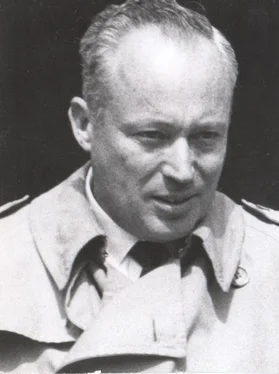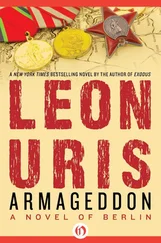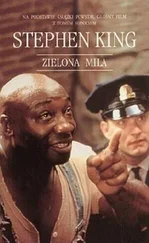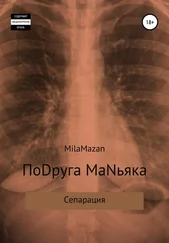With hand signals he dispersed his force of ten women and thirty men to pre-fixed positions. They ducked behind the lumber with their weapons ready. Wolf blew a long breath and nodded for Creamski to return to the assembly room.
Creamski grunted and strained to put the loaded cart into motion. As he turned into the lathe room he gave a hand signal which could be seen by a table “leader” in the assembly room. Every eye in the room was on the “leader.” He nodded.
Clump! Clump! Clump! Clump!
The feet of the inmates thumped against the floor in unison.
Boom! Boom! Boom! Boom!
They took their wooden handles and banged them on the tables, setting up a din.
“What’s going on!” shrieked the foreman through a megaphone from his balcony cage. “Stop this noise! Stop it! Do you hear!”
Clump! Clump! Clump! Clump! Boom! Boom! Boom! Boom!
The clatter from the building swelled over the compound.
“Guards!” the foreman shouted into his alarm phone. “Guards! Building number four! Quick!”
Alarm sirens erupted all over the complex in a series of short whistles to draw the guards to assembly building number four.
The foreman locked the barred door of his office. He snatched the pistol from his desk and looked down at the five hundred pairs of maddened eyes staring up at him.
Clump! Clump! Clump! Clump!
“Krebs dies! Krebs dies! Krebs dies! Krebs dies!” they chanted his name.
Ukrainians, Latvians, and Estonians poured out of the guard barracks with whips, guns, and dogs, racing for the spot of the insurrection.
Part of Wolf Brandel’s force, hidden around the outside of the building, let them pass through. There was only one entrance, through the main corridor. He watched the first of the guards pass into the assembly room from his position in the lathe room.
“Now!”
Wolf and ten of his Fighters stepped into the corridor and faced a mass of guards. The Ukrainians had trapped themselves. A pipe grenade shattered in their midst, followed by a tattoo of pistol fire.
The Ukrainians outside plunged backward for the exit, but the Jewish Fighters outside moved in to cut them off. A massacre ensued.
A half dozen guards reached the assembly room. The slaves leaped from their benches. In pent-up wrath they attacked their tormentors and their tormentors’ dogs with bare hands. Within seconds the guards and dogs were pummeled to death and their bodies smashed with spit and kicks and disembowelment and decapitation.
Benches were overturned and smashed, lathes broken up by sledge hammers.
“Krebs! Krebs! Krebs! Krebs!”
The foreman was bug-eyed, insane with fright, locked in his own prison. They were coming up the balcony after him. No way of escape!
“Krebs! Krebs! Krebs! Krebs!”
He placed the barrel of the pistol in his mouth and pulled the trigger as the outstretched arms of the slaves reached through the cage for him.
Ana Grinspan, with a company in the central district, was the highest-ranking woman commander in the ghetto. Her company was the most integrated of the various parties and final proof that unity had been achieved. Thirty-two Fighters came from the Bathyrans, Poale Zion, Gordonia, Dror, Communists, Akiva, Hashomer Hatzair, Hechalutz, and the Bund. She even had four members from religious Zionist Mizrachi who could no longer stomach the passive attitudes of the Orthodox Agudah.
The secondary objective at Brushmaker’s was the confiscation of the fleet of five trucks. The instant Brushmaker’s was secured Wolf turned the trucks over to Ana, who put into operation a pre-set plan. Each truck had a driver, four fighters, and liberated Brushmaker’s slaves.
They struck at every known remaining warehouse, store, shop, medical station, bakery, and private cache in the ghetto, holding anything usable for Joint Forces. Loading rapidly under the protective guns of the Joint Fighters, they whisked off to a series of small bunkers scattered all over the ghetto.
No protest or conversation was permitted.
“Load! Move!”
And away.
Every sack of flour, every grain of food was carted off.
One of the bunkers in the central command was located almost beneath the Jewish Militia barracks, where the Fighters kept the barracks under scrutiny. Simon Eden ordered a raid to bring back a half dozen militiamen.
They were dragged off to the new command center at Mila 18 to confront Alexander Brandel, who had drawn up a list of dozens of persons suspected of collaboration, concealing wealth, and illegal operations. The captured militiamen were quick to sing out all they knew about the location of these people.
Squads of Jewish Fighters made forays, unearthing one person after another on the list. The most notorious of the collaborators were executed. The others were fined.
“You are fined ten thousand zlotys for passing information to the Germans.”
“You are fined twenty thousand zlotys for collaboration with the Jewish Militia.”
“You are fined ten thousand zlotys for failure to protect Jews taken to the Umschlagplatz within your power to warn them.”
These fines were collected on the spot, on pain of death, without argument or equivocation.
Rodel, the squat, blocklike commander of the southern area, had been a member in good standing in the Communist party most of his adult life. He deemed it ironic that his command bunker was located under the Convert’s Church with the open knowledge of Father Jakub.
Moreover, the war had compelled him to enter strange alliances with Labor Zionists holding completely diverse political views. Zionism was the drug of the Jewish people, he had said on numerous occasions. However, he worked not only with Labor Zionists but Jabotinski Revisionists, whom he considered fascists, and religious elements, whom he considered mentally inept. It was a strange war to Rodel, but no stranger than the Soviet Union and America fighting as allies.
From the moment of Warsinski’s assassination, Rodel ordered the workers in the uniform factory to sabotage the product. In the following days, uniforms left Warsaw with flies, armholes, and neckholes sewn shut, buttons with no buttonholes, and seams that would rip away under the slightest stress.
An hour after Wolf Brandel captured Brushmaker’s, Ludwig Heinz, the manager of the uniform factory, sent a message to Rodel through Father Jakub that the Lithuanian guards had fled. Heinz, an ethnic German, was one of an infinitesimal number who displayed a measure of humanity toward the slave labor under him. Within the strict limitations permitted, Heinz was credited with saving a number of lives. He walked untouched to the corner of Nowolipki and Karmelicka streets to open the main gates and allow the Jewish Fighters in.
“I’m glad my part in this is over,” Heinz said to Rodel.
Rodel shook his shiny, hairless head. “It is a strange war,” he said. “You’ve been decent within your means. Joint Forces has ordered me to see you safely through the ghetto gates.”
“I’m glad it’s over,” Ludwig Heinz repeated.
“Let’s go,” Rodel said, pointing in the direction of the Leszno Gate two blocks away.
As Ludwig Heinz turned, Rodel whipped out his pistol and struck the man across the back of the ear with the barrel. Heinz pitched forward to the street, unconscious. Rodel leaned down and ripped part of his clothing off and bloodied his face with a series of blows.
“All right,” he ordered two fighters, “take him to the Leszno Gate and dump him. I’m sorry I had to beat him up, but it’s for his own good. If he walked out unharmed, the Germans would suspect him. This way they may get the impression he barely escaped.”
As they hauled Heinz away, he shook his head again. “Strange war,” he said.
Читать дальше












